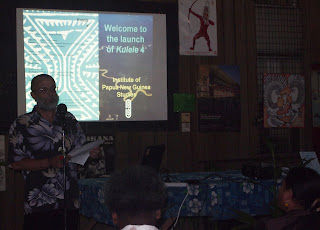 |
| Happy New Year, fellow lovers of words! |
“Why dost thou pine and suffer dearth/Painting thy outward walls so costly gay?”
With those words, exeunt storyboard, stage left – for the year 2010.
But wait. “Were’t not for laughing, I should pity him.” Perhaps those are much truthful from the bard himself than what storyboard would like to think of himself. In fact, all the pejoratives heard at the Globe Theatre would be more fitting descriptions of and for storyboard. He ain’t that real, is he?
One of the stinging experiences that storyboard recalls of any Shakespearean tragedy is the way a hero, or even a court jester, spends the last few seconds of his life making a speech. There is at once irony and tragedy involved in that.
A clan member in Romeo and Juliet, for example, does not quite know that during a tussle with Romeo and others he had been fatally wounded. He nonetheless embarks on comically expressing an opinion which takes up more than five seconds of dialogue. Then, suddenly, he is rolling down the stairs to lie still at the bottom. Then a cry rings out that he is no more.
How he is wounded happens as quickly as lightning. An actor must be a genius to act that part out. And while the actor is privileged to know what he is presenting to the audience, the character himself does not. It is this character that storyboard is interested in. He is like every one of us. A good director must tell us exactly when and how he was wounded. That much we need to know. But as for the drama itself the character who is fatally wounded does not know that he is dead long before he had begun his final speech. But he does manage to complete that speech, and that in itself is miraculous. Good old Shakespeare.
It is as if the world, which is a stage according to the bard, has denied us that little knowledge. With us being that particular character play along, nevertheless, totally oblivious to the fact that we have been had. In such circumstances it would be wise, if we had the opportunity to decide for ourselves, to merely read the signs of all and sundry that surrounds us and walk away. But nine times out of ten we do not. And that is the most tragic part of our lives.
And all the more tragic if those of us know that our time’s up but that we choose to go on clinging onto this thing we call power.
When once a certain gentleman sensed that his time would be up, that he could lose all, he sought the opinion of the one who knew best, and the advice he received was less encouraging for him than he had expected. Go out and sell everything you own, and with that give your chattel to the poor. Be content with simplicity in living. What did our learned colleague choose? The exact opposite of what he had heard.
It would seem therefore that there is no way out of this dilemma. Either we cling on to power and regret it, or resign our offices and see our families starve.
But there is always a remedy to all this for all Papua New Guineans and that is what storyboard is getting at here. For those who have reached the age think seriously of writing memoirs. Your memoir could be the history of Papua New Guinea as a sovereign state. And it is true that such a memoir could sell.
Perhaps this is one good area of communal activity that we should attend to. Steven Winduo mentioned this at his “window” not long ago. Apparently those to whom the message was directed and who should have been paying attention decided not to. And that is sad.
Virtually all the leaders of the world redeem themselves through the genre of memoirs. The results are usually seen to be encouraging. Let our leaders do likewise. Let this activity be one of their New Year resolutions. It is a better activity than any other enterprise, especially when the clock has struck three pm several hours ago. It is good for the generations which follow to know what had gone on before them. Even good men could lose an opportunity like this one. Notice the opening citation of the bard’s for this article. Surely we all think we are rich, we are good, we are okay, but are we really happy inside, where the soul is? And there you have it.
As for the bard himself he did what was correct. If he were a statesman the option would have been to resign his office, retire to the woods, build a cabin and write poems. Never mind about the worldly luxuries and creature comforts. The sea is full of food and so are the hills and the forests. What more can we ask for in Papua New Guinea?
We stay on in the cities and you guessed it. Things have become astronomically expensive, quite unaffordable for a good few of our country men and women. Notice even how expensive Poet’s Corner has become these days. Thinking even that the item of inspiration would be affordable storyboard discovered quite to his dismay that its costs K56.95 at a local supermarket.
But come away from that shop and concentrate rather on writing the memoir.











